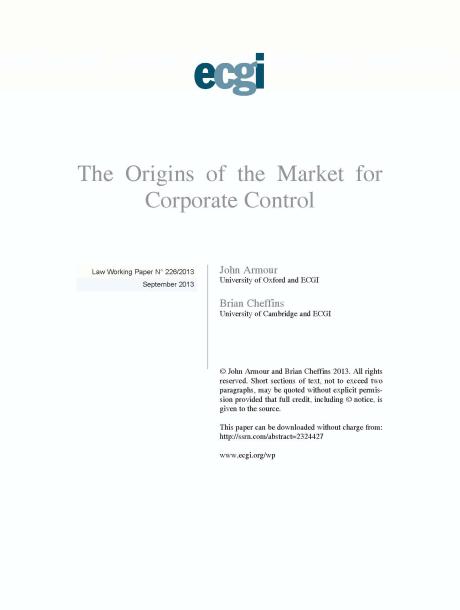
The Origins of the Market for Corporate Control
Abstract
This paper, which was prepared for a University of Illinois College of Law symposium
honoring Prof. Larry Ribstein, examines the origins of the market for corporate control
in the United States. The standard historical narrative is that the market for corporate control took on its modern form in the mid-1950s with the emergence of the cash tender offer. Using hand-collected data from newspaper reports, we show that there in fact were numerous instances during the opening decade of the 20th century where a bidder sought to obtain voting control by purchasing shares on the stock market. Moreover, share-forshare exchange tender offers were used to make takeover bids as early as 1901, and cash tender offers can be traced back to at least the mid-1940s. We argue that the way in which cash tender offers came to dominate the market for control after World War II can be explained primarily by changes in the pattern of share ownership and of the opportunities bidders had for ?managing? the stock price of intended targets.









